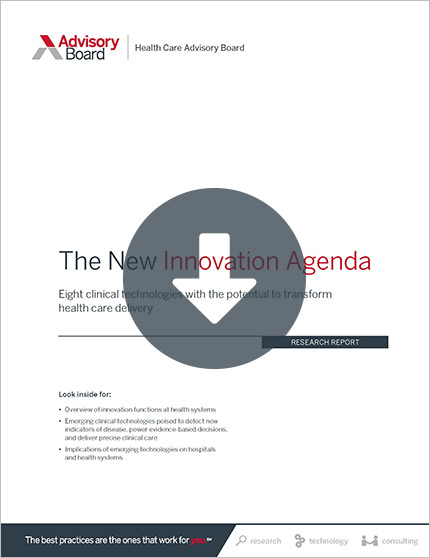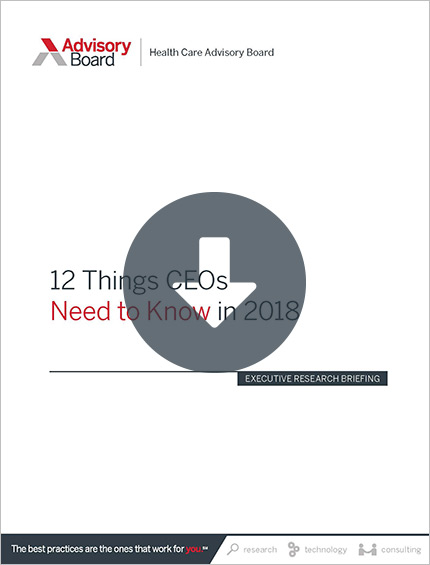Auto logout in seconds.
Continue LogoutTIME on Tuesday released its annual "100 Most Influential People" list, which this year includes 10 individuals who've made major contributions to health care.
TIME has released the "100 Most Influential People" list for the last 16 years to recognize movers and shakers across industries and disciplines.
TIME's Editor-in-Chief Edward Felsenthal in an introduction to the list described the group of people who've been named to the TIME 100 over the years as "a community of hundreds of global leaders, many of whom support and challenge one another." He continued, "And at a time when so many of our problems require cross-disciplinary solutions, they are also uniquely positioned to effect change."
The list
This year, TIME recognized 10 people for their work in health care.
Those individuals include:
- Adam Bowen and James Monsees, who came up with the idea for Juul in 2014. The Stanford University graduates introduced the device as a safer way to deliver nicotine than traditional cigarettes, Tom Miller, Iowa's attorney general, writes. Today, Juul is dominating the e-cigarette market, but it has also become "too cool for its own good, tempting teens and sparking a panic among parents and policymakers," Miller writes. He continues, "We should do everything possible to dissuade kids from using e-cigarettes ... But we should not overreact, either. Limiting adult access to a harm-reducing tool when 480,000 Americans die every year from smoking would be a public-health disaster."
- Barbara Rae-Venter, a genetic genealogist, who was using DNA samples to link people with common ancestors provided the missing piece to Golden State Killer mystery, Paul Holes, chief of forensics at the Contra Costa County District Attorney's Office, writes. After 23 years of searching, Holes writes his office was able to use Rae-Venter's science to identify and arrest a suspect in 2018. Since then, he notes his office has used the DNA strategy to make progress on more than 25 cold cases.
- He Jiankui, a researcher and founder of two genetics companies, "shattered scientific, medical and ethical norms" last year after announcing that he'd gone against the scientific community consensus and used the gene-editing technology CRISPR to create the world's first genetically modified human twin babies, Jennifer Doudna, a professor at the University of California, Berkeley who co-invented CRISPR, writes. Doudna writes that "He's fateful decision to ignore the basic medical mantra of 'do no harm' and risk the unintended consequences will likely be remembered as one of the most shocking misapplications of any scientific tool in our history.
- House Speaker Nancy Pelosi (D-Calif.), who is "leading the charge" to "protect reproductive rights, pass paid family leave, protect Americans’ right to affordable health care," former Secretary of State Hillary Rodham Clinton writes. Clinton also characterizes Nancy as "the driving force that brought a Democratic majority back to the House, and opened the door for a Congress that's more diverse than any other in our nation's history and has some of its youngest members ever."
- Leana Wen, the first physician in 50 years to serve as president of Planned Parenthood, is "leading a revolution in patients' rights," actor and activist Cynthia Nixon writes. Wen continues to fight for the right to safe, legal abortion care, and seeks to expand the health services offered at Planned Parenthood, including cancer screenings, STI testing, maternal health services, and hormone therapy for transgender patients. Wen previously served as health commissioner of Baltimore where she introduced a blanket prescription for naloxone for every resident to combat the opioid epidemic.
- Hoesung Lee, chair of the Intergovernmental Panel on Climate Change (IPCC), provides "decision-makers and the public with the world most authoritative scientific understanding of climate change," according to Ban Ki-moon, former Secretary-General of the United Nations. Lee has "made hard-hitting IPCC reports more relevant and understandable not only to policy-makers but also civil society," and has "helped convince governments to put climate action top of the global agenda," Ki-moon writes.
- Grainne Griffin, Ailbhe Smyth, and Orla O'Connor established Together for Yes, a campaign to repeal the Eighth Amendment to the Irish Constitution, which had effectively prohibited abortion. Griffin, Smyth, and O'Connor's efforts put the women of Ireland "front, center, and in control of their own bodies and rights like never before," and "mobilized people of all different backgrounds in the lead-up to the vote," according to actor Ruth Negga. As a result of those efforts, in May 2018, the Irish people voted to lift the constitutional ban on abortion (Felsenthal, TIME, 4/17; "100 Most Influential People" list, TIME, 4/17; Wagner, Washington Post, 3/29).
15 things your C-suite needs to know in 2019
No hospital or health system leader can afford inaction amid intensifying margin pressures and a rapidly restructuring market. Use this briefing to learn the top 15 insights that will drive health system success in 2019 and beyond.
Don't miss out on the latest Advisory Board insights
Create your free account to access 1 resource, including the latest research and webinars.
Want access without creating an account?
You have 1 free members-only resource remaining this month.
1 free members-only resources remaining
1 free members-only resources remaining
You've reached your limit of free insights
Become a member to access all of Advisory Board's resources, events, and experts
Never miss out on the latest innovative health care content tailored to you.
Benefits include:
You've reached your limit of free insights
Become a member to access all of Advisory Board's resources, events, and experts
Never miss out on the latest innovative health care content tailored to you.
Benefits include:
This content is available through your Curated Research partnership with Advisory Board. Click on ‘view this resource’ to read the full piece
Email ask@advisory.com to learn more
Click on ‘Become a Member’ to learn about the benefits of a Full-Access partnership with Advisory Board
Never miss out on the latest innovative health care content tailored to you.
Benefits Include:
This is for members only. Learn more.
Click on ‘Become a Member’ to learn about the benefits of a Full-Access partnership with Advisory Board
Never miss out on the latest innovative health care content tailored to you.



